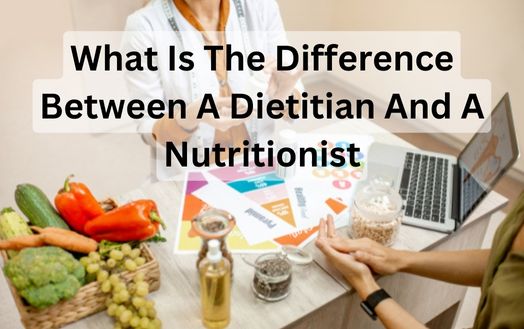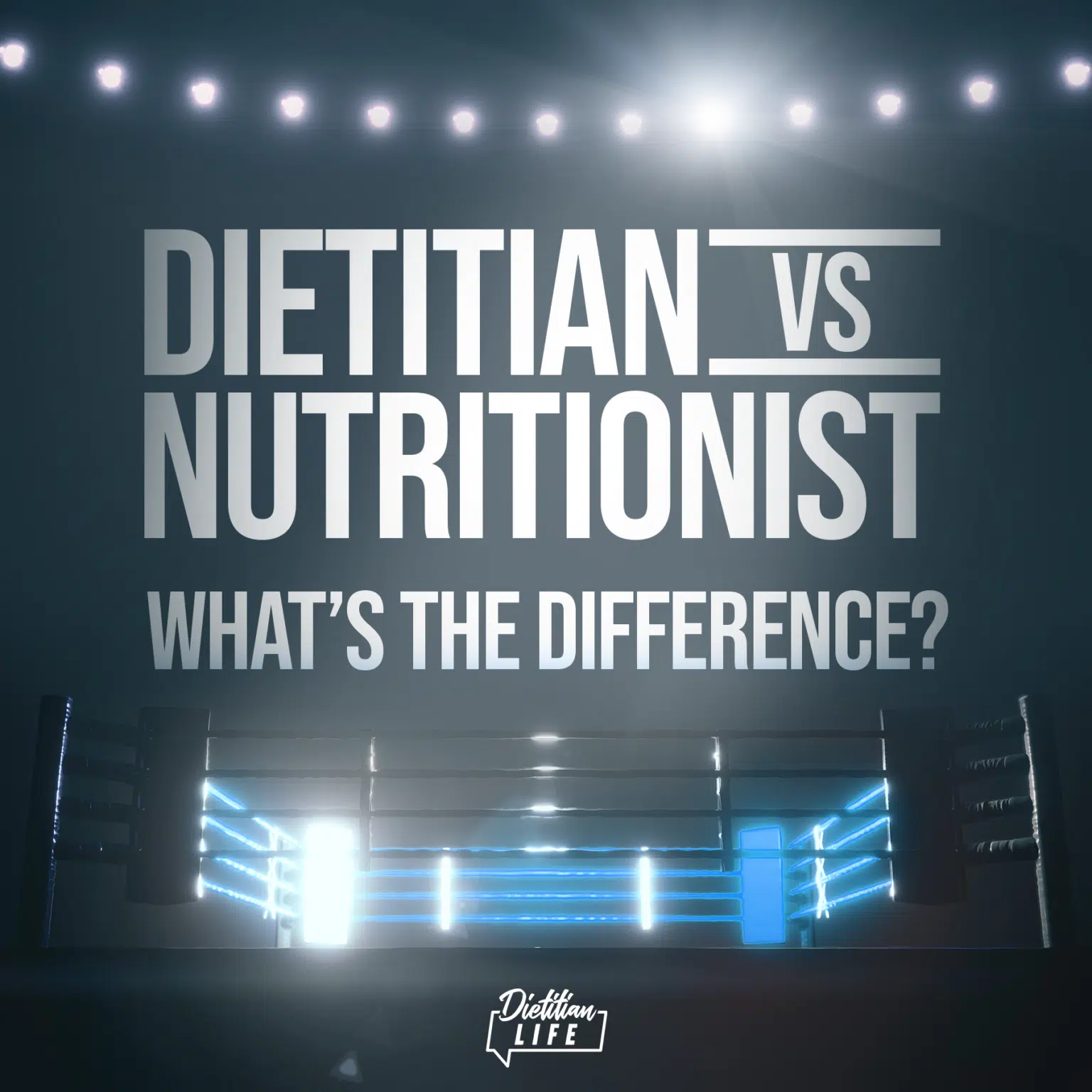All Categories
Featured
Table of Contents
-1
In the United States and many various other countries, a dietitian is a board-certified food and nourishment expert. They are very educated in the area of nourishment and dietetics the science of food, nourishment, and their effect on human health. Through extensive training, dietitians acquire the experience to give evidence-based medical nourishment treatment and dietary therapy tailored to fulfill a person's demands.
-1To clear up, the credentials of RD and RDN are interchangeable. Nonetheless, RDN is a much more recent classification. Dietitians can select which credential they would rather make use of. To gain these credentials dietitians-to-be should first gain a bachelor's degree or comparable credit histories from a certified program at a college or college. Usually, this requires an undergraduate science level, including programs in biology, microbiology, natural and inorganic chemistry, biochemistry and biology, anatomy, and physiology, along with more specific nourishment coursework.
Postpartum Dietitian – Mandurah
-1This enables them to evaluate intense needs, prioritizing life-threatening problems. Inpatient and outpatient dietitians also provide nourishment education and learning to individuals with specialized needs, such as those recently out of surgical procedure, in cancer cells therapy, or detected with persistent diseases like diabetes mellitus or kidney disease. In the outpatient setup, they provide more in-depth dietary therapy working towards a nutrition-oriented objective.
-1Research study dietitians generally work in study medical facilities, organizations, or universities. Once dietitians have actually made their credentials and are working in the field, they can go on to specialize in a certain subcategory, such as pediatric medicines or sports dietetics.
-1They may additionally teach in a scholastic or research establishment or discuss nutrition-related topics. Others might function as wellness and nourishment specialists in media or as public audio speakers. Dietitians are qualified to manage nourishment treatment throughout a span of acute and persistent problems. The kind of conditions they treat depends most on the setup of their practice.
Functional Nutritionist
-1In numerous states, such as Alaska, Florida, Illinois, Maryland, Massachusetts, and Pennsylvania, RDs and CNSs are approved the same state permit, normally called an Accredited Dietitian Nutritionist (LDN) permit. In states that do not manage using this term, anyone with a rate of interest in diet regimen or nutrition may call themselves a nutritionist.
-1Nonetheless, since uncredentialed nutritional experts generally lack the expertise and training for clinical nourishment therapy and nutrition therapy, following their suggestions can be considered unsafe (). Prior to getting in touch with a nutritionist, you might wish to check whether your state regulates who might utilize this title. In the united state states that do not regulate the term, no degrees or qualifications are required to be a nutritional expert.

-1
In states that do mandate licensure, the CNS or RD credential may needed. Those with CNS credentials are health and wellness specialists like registered nurses or medical professionals with advanced health and wellness degrees who have sought extra coursework, completed supervised technique hours, and passed an exam supervised by the Board for Qualification of Nourishment Specialists.
-1While several of these techniques might have durable scientific backing, others may not. Providing nutrition guidance without the correct expertise and training can be hazardous, especially when counseling those with wellness conditions. If you are thinking about seeking advice from a nutritionist, you may want to ask if they are a CNS or have state licensure or certification, or an additional credential.
Dietitian And Personal Trainer – Dawesville 6211
-1Several states especially regulate this term. Furthermore, nutritionists may go after a sophisticated CNS certification.
-1It can be challenging to aid individuals make authentic, long-term adjustments in their lives. Both dietitians and nutritionists provide a range of nutrition-based solutions to customers.
-1They must have completed some level of education and learning in their area. They are also required to have actually completed approximately a year of monitored job, working within an assisted program at a healthcare center, catering service, or neighborhood body. Dietitians have far greater expectations placed on their capacities and degree of expertise.
-1This suggests that there is no body that oversees their qualifications and no especially rigorous guidelines that nutritionists demand to adhere to in order to be able to exercise. Dietitians, on the other hand, are registered with across the country recognised bodies, such as the Dietitians Organization of Australia. They have to follow the National Competency Specifications for Dietitians.
Licensed Dietitian

-1
You can practice as a nutritional expert without the very same degree of accreditation as a dietitian. Nutritionist training courses can differ in length and top quality, with some as short as 6 weeks and covering much less material than a dietetics training course. Relying on your education provider, you can obtain a substantial amount of expertise via examining a basic nutrition course; nonetheless it is very important to explore the course content before starting.
-1This can consist of going to sector seminars or reviewing sector magazines. Nutritionists, on the various other hand, typically make their certifications in order to supplement various other certifications and supply better recommendations to their customers. Nutritional experts can gain employment in a large range of fields, including public health suggestions, guidance for individuals, and collaborating with exclusive organisations.
-1Nutritional experts can function with showing off organisations, gyms, colleges and recommend media outlets on basic terms and appropriate use of terms. Dietitians can work in many of the exact same functions as nutritional experts.
Sports Nutritionist (Dawesville 6211)
-1Dietitians usually function with even more medically delicate customers. These can include those with diabetic issues, allergies, obesity, cancer cells and gastrointestinal diseases. Due to the high degree of knowledge needed to supply solutions to these individuals, just certified dietitians are allowed to provide care. A few of the greater degree functions with medical care establishments can be really gratifying, and pay quite well.
-1In Australia there is a difference between a dietitian and other dietary wellness companies including nutritionists. All dietitians are nutritional experts, however nutritionists without a dietetics qualification can't call themselves a dietitian. While there are similarities in between a dietitian and nutritional expert there are differences in credentials and policy. The dietetic profession is managed and meets rigorous criteria as established out by the National Alliance of Self Regulating Wellness Professions (NASRHP).
-1Dietitians with the Accredited Practising Dietitian (APD) credential devote to ongoing training and education and learning throughout their jobs. As an occupation, nutritional experts are not controlled in Australia under NASRHP or certified under a solitary regulatory body.
Dietary Advice
-1If you have a chronic health and wellness problem and a treatment plan from your General practitioner, you may be able to declare a Medicare discount when you see an APD. The primary purpose of individuals working in the occupation of dietetics is personified in this statement: The career of dietetics contributes to the promo of health and wellness and the avoidance and therapy of health problem by optimizing the nourishment of populations, neighborhoods and people. Personal Trainer Nutritionist.
Latest Posts
Bariatrics
Dietitian For Children – Albany 6330
What Are The Best Postpartum Weight Management Companies?